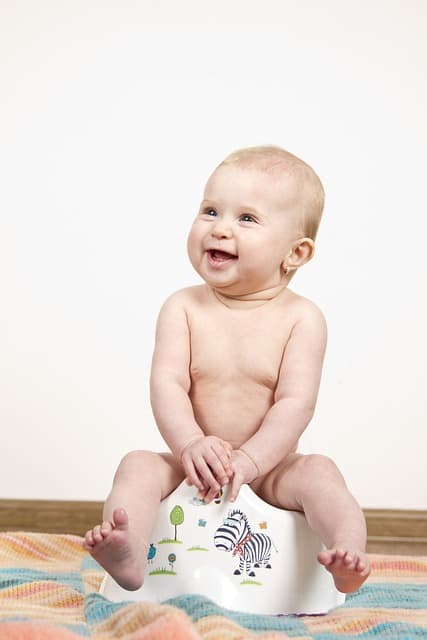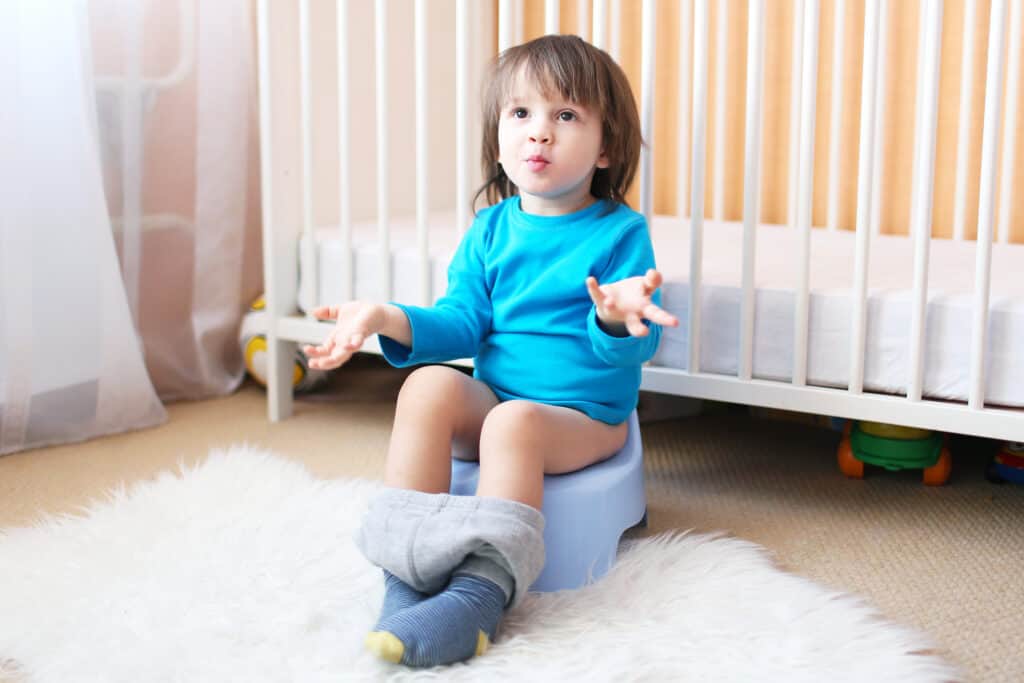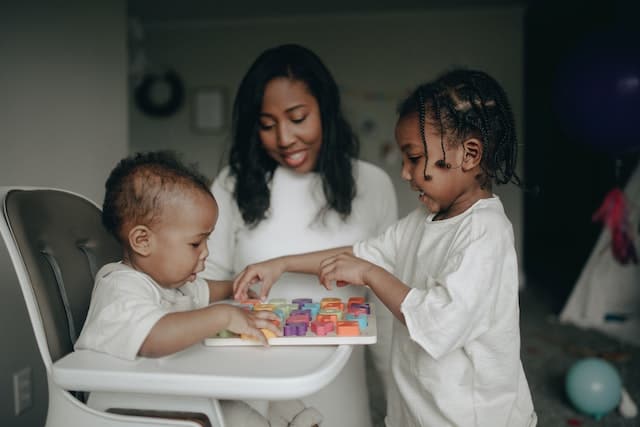Potty training is a significant milestone in a child’s life, and parents often feel relieved when their child finally masters the skill. However, accidents can still happen, even after a child has been potty trained for some time.
It can be especially frustrating for parents and children when accidents occur at school, as it can be embarrassing and disruptive to the child’s learning and social experiences.
There are many reasons why a potty-trained child may have accidents at school. It could be due to a medical condition, such as constipation or urinary tract infections. Alternatively, it could be due to anxiety, stress, or a change in routine.
Whatever the reason, it’s essential to address the issue as soon as possible to prevent it from becoming a long-term problem.
Key Takeaways
- Accidents can still happen even after a child has been potty trained for some time.
- There are various reasons why a child may have accidents at school, including medical conditions, anxiety, stress, or a change in routine.
- It’s essential to address the issue promptly to prevent it from becoming a long-term problem.
Understanding Potty Training Regression
Potty training regression can be frustrating for both parents and toddlers. It is not uncommon for a potty-trained child to have accidents at school or at home. Regression can happen for various reasons, and it’s important to understand what causes it and how to address it.
What is Potty Training Regression?
Potty training regression is when a child who has been potty trained for a period of time, starts having accidents again. Regression can happen at any age, but it’s most common in toddlers who are between 2 and 4 years old.
Causes of Potty Training Regression
There are several reasons why a child may experience potty training regression.
Some of the most common causes include:
-
Stressful life events: Major changes such as moving to a new house, welcoming a new sibling, or starting preschool can cause stress and anxiety, leading to potty training regression.
-
Medical issues: Urinary tract infections, constipation, and other medical issues can cause discomfort and pain, leading to accidents.
-
Developmental changes: As children grow and develop, they may become more focused on other things and forget to use the bathroom.
Addressing Potty Training Regression
Addressing potty training regression can be challenging, but it’s important to remain patient and calm.
Here are some tips to help:
-
Be understanding: It’s important to understand that regression is a normal part of the potty training process.
-
Revisit potty training basics: Go back to the basics of potty training, such as reminding your child to use the bathroom regularly and rewarding them for successful attempts.
-
Address any underlying issues: If your child is experiencing medical issues or stress, address those issues first to help them feel more comfortable.
-
Be consistent: Consistency is key when it comes to potty training. Stick to a routine and encourage your child to use the bathroom regularly.
In conclusion, potty training regression is a common occurrence in toddlers. Understanding the causes and addressing the issue with patience and consistency can help your child get back on track with their potty training.
Common Causes of Accidents at School
Accidents can happen to anyone, even to potty-trained children. When accidents happen at school, it can be embarrassing and stressful for the child.
There are different reasons why accidents occur, and it is essential to identify the cause to prevent it from happening again.
Physical Causes
Physical causes of accidents at school can include medical conditions such as bladder or bowel problems, constipation, or urinary tract infections. Children who have these conditions may experience leakage or accidents because they cannot control their bladder or bowel movements.
Another physical cause of accidents can be related to diet or hydration. Children who do not drink enough water or eat enough fiber may have difficulty passing stool, leading to constipation and accidents.
Psychological Reasons
Psychological factors can also contribute to accidents at school. Children who are experiencing stress, anxiety, or fear may have accidents because they are too preoccupied with their emotions to focus on their bodily functions.
Bullying can also be a psychological cause of accidents. Children who are bullied may feel too scared or ashamed to use the bathroom, leading to accidents.
Life changes such as the arrival of a new baby or moving to a new home can also cause stress and anxiety, leading to accidents.
In conclusion, accidents at school can happen for different reasons, and it is essential to identify the cause to prevent it from happening again. Parents and teachers should work together to create a supportive environment for the child and address any physical or psychological issues that may contribute to accidents.
Medical Conditions That Can Cause Accidents
Children who are potty trained may still have accidents at school due to various medical conditions.
Here are some common medical conditions that can cause accidents:
Urinary Tract Infections
Urinary tract infections (UTIs) are a common cause of accidents in children. UTIs occur when bacteria enter the urinary tract, causing inflammation and infection. Symptoms of a UTI include frequent urination, pain or burning during urination, and a strong urge to urinate.
Children with UTIs may also experience bedwetting or daytime accidents. Treatment for UTIs typically involves antibiotics.
Constipation
Constipation can also lead to accidents in potty-trained children. When a child is constipated, their rectum can become stretched and weakened, making it difficult to control bowel movements. Children with constipation may also experience abdominal pain, bloating, and infrequent bowel movements.
Treatment for constipation typically involves dietary changes, increased water intake, and medication.
Diabetes
Diabetes can cause accidents in potty-trained children due to high blood sugar levels. When blood sugar levels are too high, the body tries to get rid of excess glucose by producing more urine. This can lead to frequent urination and accidents.
Children with diabetes may also experience fatigue, increased thirst, and weight loss. Treatment for diabetes typically involves insulin injections and dietary changes.
Overactive Bladder
An overactive bladder can cause accidents in children who are potty trained. An overactive bladder occurs when the muscles in the bladder contract involuntarily, causing a sudden urge to urinate.
Children with overactive bladder may also experience frequent urination and bedwetting. Treatment for an overactive bladder typically involves bladder training exercises and medication.
Incontinence
Incontinence is the inability to control bladder or bowel movements. Incontinence can be caused by a variety of medical conditions, including neurological disorders, spinal cord injuries, and birth defects.
Children with incontinence may experience frequent accidents and may require special products, such as diapers or pads, to manage their condition.
In conclusion, accidents in potty-trained children can be caused by a variety of medical conditions. It’s important for parents and caregivers to be aware of these conditions and to seek medical attention if their child is experiencing frequent accidents.
Identifying and Addressing the Problem
Young children who have been potty trained may still have accidents at school. This can be a frustrating and embarrassing experience for both the child and the parents.
However, it is important to identify and address the problem to ensure the child’s well-being and comfort at school.
Consulting a Pediatrician
If a child who has been potty trained starts having accidents at school, it may be a sign of an underlying medical issue. In such cases, consulting a pediatrician is recommended. The pediatrician can examine the child and rule out any medical conditions that may be causing the accidents.
Additionally, the pediatrician can provide advice on how to address the issue and offer suggestions on how to make the child feel more comfortable at school.
Observing Child’s Behavior at School
It is important to observe the child’s behavior at school to identify any triggers that may be causing the accidents. Parents should communicate with the child’s teacher or caregiver to get a better understanding of the situation.
It may be helpful to keep a log of the child’s accidents to identify patterns. For example, the child may be having accidents at a certain time of day or when they are engaged in a particular activity. Identifying these patterns can help parents and teachers address the problem more effectively.
Communicating with Your Child
It is important to communicate with the child and express empathy for their situation. Parents should have an open and honest conversation with the child to understand how they are feeling and offer reassurance that accidents happen and it is okay.
Additionally, parents can work with the child to develop a plan to address the problem. This can include taking frequent bathroom breaks, wearing protective clothing, or talking to the teacher or caregiver when they need to use the restroom.
In conclusion, identifying and addressing the problem of potty trained children having accidents at school requires a collaborative effort between parents, teachers, and pediatricians.
By observing the child’s behavior, consulting a pediatrician, and communicating with the child, parents can help their child feel more comfortable and confident at school.
Practical Steps to Overcome Accidents
Establishing a Routine
One of the most effective ways to prevent accidents is to establish a routine. This means setting regular times for using the bathroom, such as before and after meals, and before and after recess. It’s important to give the child enough time to use the bathroom and not rush them.
Encouraging the child to use the bathroom even if they don’t feel the need to can also help prevent accidents.
Using Positive Reinforcement
Positive reinforcement can be a powerful tool in helping a child overcome accidents. This can be done through a reward system, such as a sticker chart, where the child receives a sticker for each day they have no accidents.
Once they have accumulated a certain number of stickers, they can receive a reward, such as a small toy or a special treat. It’s important to make the rewards meaningful to the child and to be consistent in giving them out.
Dealing with Embarrassment and Shame
Accidents can be embarrassing for a child, especially if they happen at school. It’s important to reassure the child that accidents happen and that it’s not their fault. Encouraging them to talk about their feelings can also help them feel less ashamed or embarrassed.
It’s important to avoid punishment or shaming the child for having accidents, as this can make the problem worse.
By establishing a routine, using positive reinforcement, and dealing with embarrassment and shame in a sensitive manner, parents and teachers can help children overcome accidents and build confidence in their ability to stay dry.
Toilet Training Tools and Techniques
Toilet training a child is a significant milestone in their development, but it can be a challenging process. Accidents can happen, especially when children are in new environments, such as school.
However, with the right tools and techniques, parents and caregivers can help their child stay on track.
Training Pants
Training pants can be a helpful tool during toilet training. They offer more protection than regular underwear, but are not as bulky as diapers.
Training pants come in different styles, including pull-ups and snap-on pants. They can also be decorated with favorite characters or designs, making them more appealing to children.
Potty Chair
A potty chair is a small, portable toilet that can be used by children during toilet training. They come in different shapes and sizes, and some even have fun designs or sounds. Potty chairs can help children feel more comfortable and relaxed during the toilet training process.
Gentle Reminders
Gentle reminders can be a helpful technique during toilet training. Parents and caregivers can remind children to use the bathroom regularly, especially during times when accidents are more likely to occur, such as after meals or before leaving the house.
It is important to be patient and gentle when reminding children, as pressuring or scolding them can lead to anxiety and setbacks in the toilet training process.
In summary, toilet training can be a challenging process, but with the right tools and techniques, parents and caregivers can help their child succeed.
Training pants, potty chairs, and gentle reminders can all be helpful in the toilet training process. It is important to remain patient and relaxed, gently guiding the child towards success.
Conclusion
Potty training is an important milestone for children and their parents. However, accidents can still happen even after a child has been potty trained. This can be especially challenging for parents when their child is at school and has an accident.
When accidents happen at school, it is important for parents to communicate with the school and their child’s teacher. This can help ensure that the child is supported and that the school has the necessary resources to help the child.
Parents can also take steps to help reduce the likelihood of accidents at school. This can include sending their child to school with extra clothes and reminding their child to use the bathroom before leaving for school.
It is important for parents to remember that accidents are a normal part of the potty training process and that it takes time for children to fully master this skill.
By working together with their child’s school and teacher, parents can help support their child through this process and help them feel confident and successful.
Related posts:
Frequently Asked Questions
Why is my child having accidents at school?
There are many reasons why a potty trained child may have accidents at school. Some common reasons include not being able to hold their urine for long periods, being too busy to go to the bathroom, being anxious or stressed, or simply forgetting to go to the bathroom.
It is important to identify the cause of the accidents so that appropriate measures can be taken to prevent them in the future.
What are some common reasons for potty training regression?
Potty training regression can be caused by a variety of factors, including changes in routine, stress or anxiety, illness, or a new environment. It is important to identify the cause of the regression and work with your child to address it in a supportive and positive manner.
How can I help my potty trained child who is having accidents?
It is important to remain calm and supportive when your child is having accidents. Encourage your child to use the bathroom regularly and remind them to go before leaving for school.
You can also work with your child’s teacher to establish a routine for bathroom breaks during the school day.
What are some strategies for preventing accidents at school?
There are several strategies that can be effective in preventing accidents at school. Encourage your child to use the bathroom regularly and remind them to go before leaving for school.
Work with your child’s teacher to establish a routine for bathroom breaks during the school day. You can also provide your child with extra changes of clothes in case of accidents.
What are some possible psychological reasons for daytime wetting?
Daytime wetting can sometimes be caused by psychological factors such as anxiety or stress. It is important to work with your child to identify any underlying issues and address them in a supportive and positive manner.
Bedwetting and daytime accidents are not always related, but they can be caused by similar factors such as stress or anxiety. If your child is experiencing both bedwetting and daytime accidents, it may be helpful to work with a healthcare provider to identify any underlying issues and develop a treatment plan.

Iesha is a loving mother of 2 beautiful children. She’s an active parent who enjoys indoor and outdoor adventures with her family. Her mission is to share practical and realistic parenting advice to help the parenting community becoming stronger.



